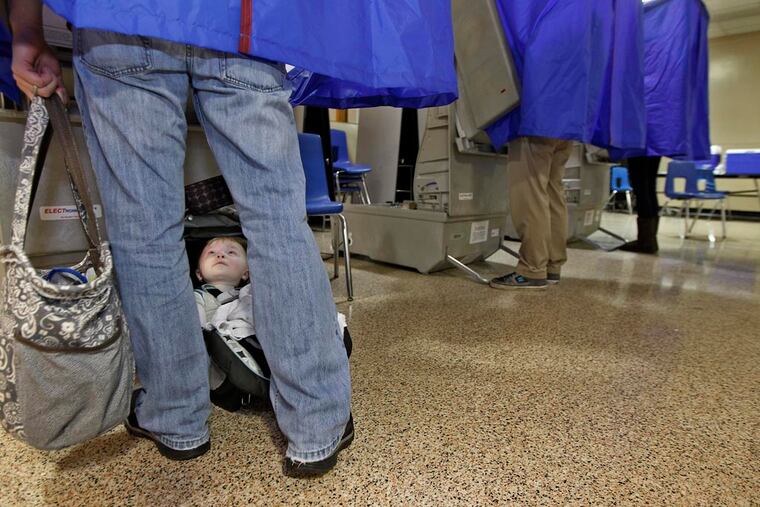Pa. primaries should be open | Editorial
Legislation to allow independent voters to cast ballots in Republican or Democratic primaries advances in Harrisburg.

With 2020 presidential campaigns rolling and arguments over voting rights raging, now seems an auspicious time for Pennsylvania and other closed primary states to open up and let in more voters.
The Pennsylvania Senate voted 42-8 last Tuesday to approve a bill introduced by President Pro Tempore Joe Scarnati (R., Jefferson) to enable “unaffiliated,” or independent, voters to choose Republican or Democratic ballots on primary day. The bill has bipartisan support.
If approved by the House and signed by Gov. Tom Wolf, the change would be effective next year, impacting about 790,000 unaffiliated voters in Pennsylvania.
“As part of democracy, it is crucial that we allow independent voters to also have a voice in elections,” Scarnati said in a tweet last Wednesday. And in a video posted on his website in May, he said chronically low primary turnouts contribute to “extremism” in both parties.
Hyper-partisanship is worrying to moderate incumbents of both parties, because primary voters tend to be more partisan and prone to vote for more ideological challengers. Among voters wearying of political extremism, open primary supporters should gain momentum.
The League of Women Voters, Common Cause, the Committee of Seventy, and other good-government advocates support the Pennsylvania push. Representatives of both parties held a Harrisburg news conference in early June to showcase an overarching reform campaign to boost voter participation. Nationally, an open primary effort began in 2014, with Colorado the most recent state to make the shift.
“Open” has more pleasing connotations than “closed,” and the notion of enabling a greater number of people to cast ballots has commonsense appeal. It seems a relatively simple path to an unalloyed civic good.
But open primary opponents say that allowing the unaffiliated into the booth is an invitation to strategic voting — for a fringe candidate, say — that could distort results. They also point out that an unaffiliated voter can already register as an R or a D up to 30 days in advance of a primary.
However, the more important point is that closed primaries amount to publicly subsidized elections decided only by political parties, which are in effect private organizations. This conflicts with the fundamentally public nature of elections, which are neither privately funded nor privately run. They are paid for by the taxpayers and largely overseen by public employees. This hybrid custom endures in some form in about a dozen states even as major party affiliation among all voters is declining nationally, especially among younger people, with more now identifying as nonaffiliated than either Republican or Democrat.
The country also has endured years of far-right charges of “voter fraud,” such as the baseless claims made by President Trump, while genuine concerns about disenfranchisement, particularly among voters of color, continue to grow. Last week, many were dismayed by the U.S. Supreme Court’s ruling that seemed to bless gerrymandering, a deck-stacking process that fuels feelings of futility among many voters.
So what better time than now to widen access to the ballot? Pennsylvania could, and should, open its primaries in 2020.